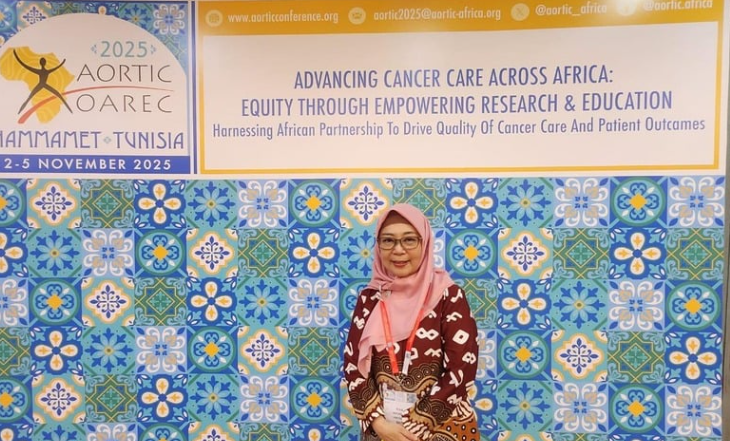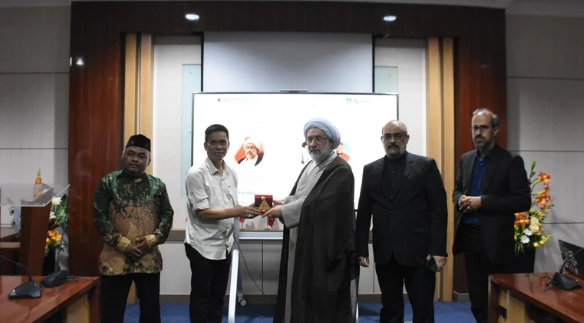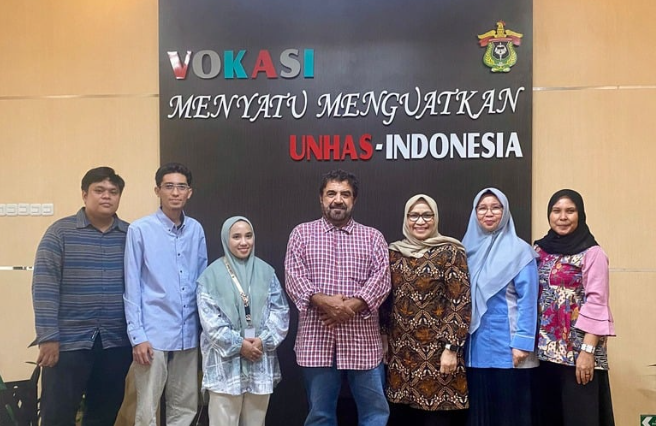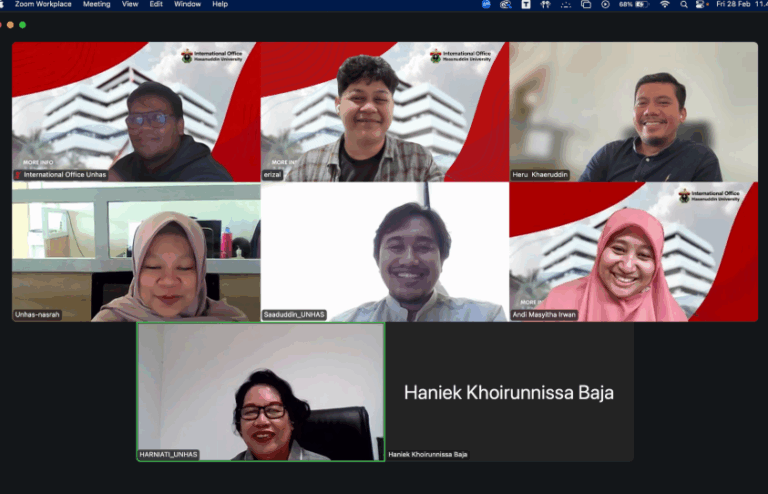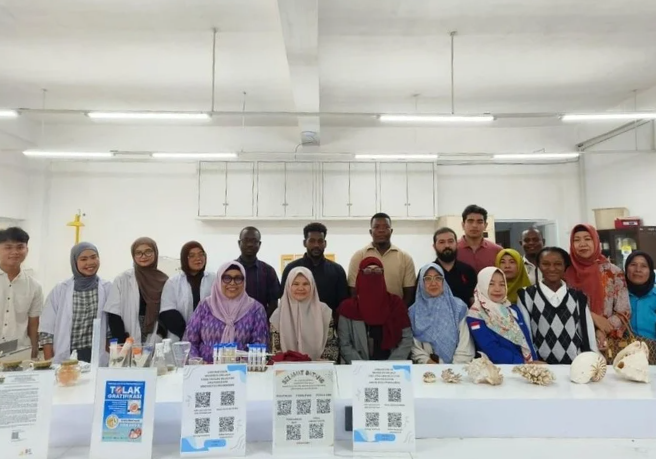The Department of Nutrition Science, Faculty of Public Health, Hasanuddin University (FKM UNHAS), successfully hosted The 4th International Webinar Series as part of the 3rd International Conference on Nutrition and Public Health (ICNPH). The event, held on Thursday, 18 September 2025, from 08:00 to 13:00 WITA (GMT+8), carried the theme “Sustainable Nutrition for All: Integrating Science, Policy, and Community Actions”, highlighting the critical integration of science, public policy, and community-based actions to advance sustainable nutrition for all.
The webinar featured distinguished speakers from both national and international institutions: Dr. Yasmin Ooi Beng Hou (Faculty of Science and Nutrition, University Malaysia Sabah), Helda Khusun, PhD (SEAMEO Regional Centre for Food and Nutrition), and Sabaria Manti Battung, PhD (Department of Nutrition Science, Faculty of Public Health, UNHAS). The session was moderated by Laksmi Triassmita, S.Gz., MKM, faculty member of the Department of Nutrition Science, FKM UNHAS.
In his welcoming remarks, Andi Imam Arundhana, S.Gz., MPH., Ph.D., Head of the Department of Nutrition Science, emphasized that this webinar marked the fourth series organized by the Department. He highlighted the importance of the event in providing the latest scientific updates in the field of nutrition while fostering collaboration across sectors to improve the nutritional status in Indonesia. “This international series not only delivers the latest insights into nutrition science but also serves as a platform to build stronger collaborative networks in addressing nutritional challenges at both national and global levels,” he noted.
The webinar was formally inaugurated by Prof. Sukri Palutturi, SKM., M.Kes., M.Sc.PH., Ph.D., Dean of the Faculty of Public Health, UNHAS, who expressed his high appreciation for the initiative and consistency of the Department of Nutrition Science in hosting international seminars. Prof. Sukri underscored that such academic endeavors play an essential role in contributing to solutions for nutritional problems in Indonesia. He further emphasized that the active involvement of academics, researchers, and practitioners in international scientific forums is a concrete step towards addressing complex public health and nutrition issues.

The event was delivered virtually through Zoom Meeting and live-streamed via the official YouTube Channel of FKM UNHAS, reaching participants from diverse institutions across Indonesia and abroad. Notably, participants represented numerous universities such as Makassar State University, Alauddin State Islamic University, Mulawarman University, Alma Ata University, Gorontalo University, Tadulako University, Halu Oleo University, and Jambi University, as well as several Schools of Health Sciences (STIKes) based in Makassar and other regions across the country. This wide participation reflects the growing academic interest and commitment toward advancing nutrition research, education, and practice in Indonesia.
The presentations offered valuable perspectives: Dr. Yasmin Ooi Beng Hou underscored the importance of collaboration between scientists and communities to foster regional nutrition awareness; Helda Khusun, PhD presented the role of research and policy in shaping Southeast Asia’s nutrition agenda; and Sabaria Manti Battung., PhD highlighted community-based approaches rooted in local wisdom as strategic models for Indonesia.
By convening experts and stakeholders at the international level, the Department of Nutrition Science, FKM UNHAS, reaffirmed its commitment to advancing knowledge, strengthening global networks, and promoting actionable strategies for sustainable nutrition. The insights generated from this academic forum are expected to contribute significantly to developing evidence-based policies and innovative community actions that support improved nutrition outcomes at local, national, and international levels.
In conclusion, the 4th International Webinar Series served not merely as an academic exchange but as a collaborative platform uniting scholars, practitioners, and communities under a shared vision: the pursuit of “sustainable nutrition for all.”


